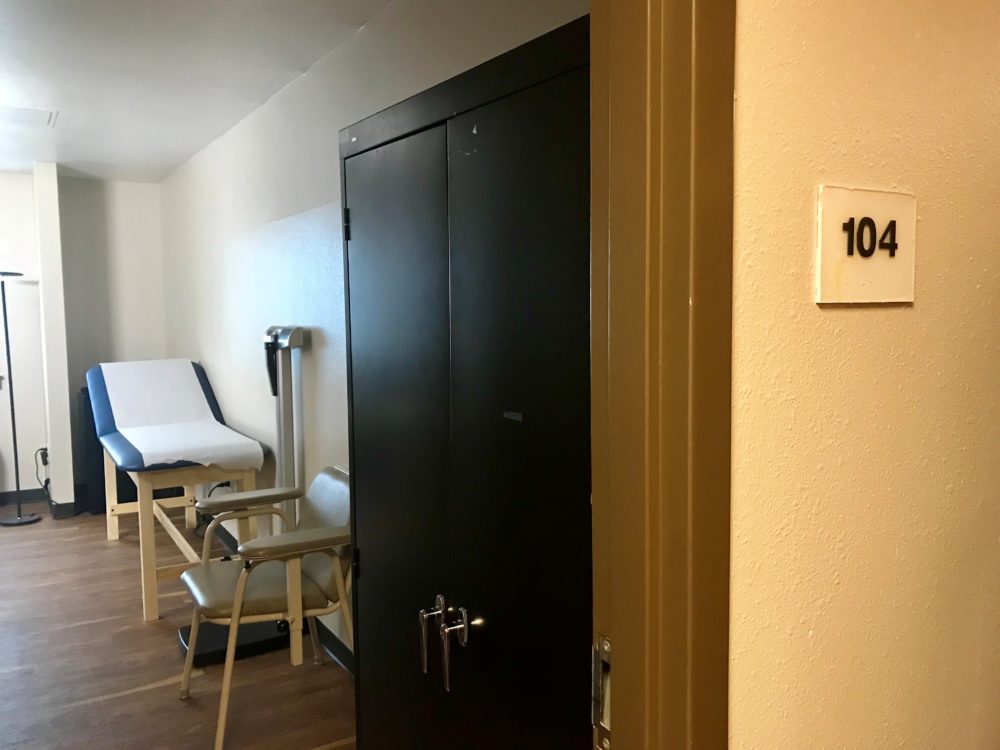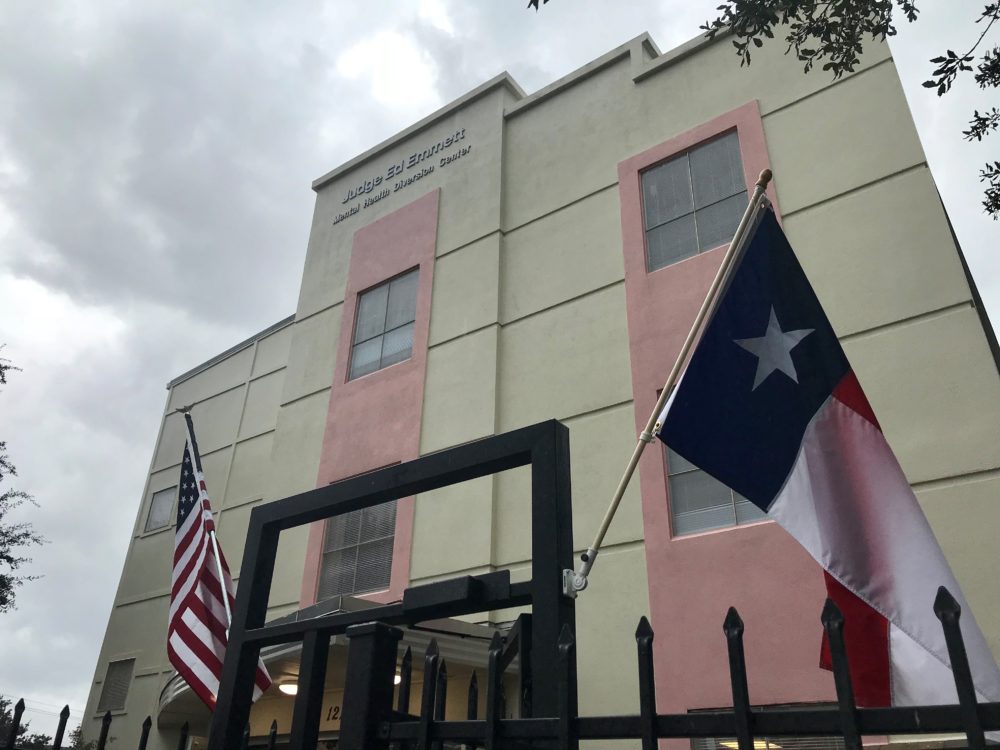
The police probably wouldn’t be your first call if you had the flu or a broken leg, yet all too often during a mental health emergency, law enforcement is where people turn.
Listen
"Mental illness, it's a health condition, so the involvement of law enforcement in a health condition is a strange dynamic and it kind of only really happens in the mental health world," said Wayne Young, CEO of the Harris Center, which provides mental health care to tens of thousands of Houstonians each year.
That includes treatment for 18,000 inmates at the Harris County Jail, annually.
Some 3,000 people receive psychiatric treatment there each day, more than any other mental health hospital in Texas.
But Young, and local leaders, have been pushing for change. Earlier this month, their efforts paid off.
Midtown’s new Mental Health Diversion Center
Early October, officials from Houston and Harris County celebrated the opening of a new Mental Health Diversion Center.
The center is named after Harris County Judge Ed Emmett, who said he understands the importance of mental health care firsthand.

At the dedication of the new center, Judge Emmett shared his father's story. Because of a mental health condition, his dad wasn’t able to spend time alone. He found ways of dealing with that through self-treatment. For example, he’d spend time walking around the mall while he waited for his wife to get off work.
"He would walk around the mall before she got off at nine o'clock," said Emmett, "but if he hadn't been a mid-level oil guy and certainly if he had been a minority in the sixties and seventies, he'd a been arrested for trespassing, over and over and over."
The new diversion center in Midtown is supposed to take care of people with similar mental health issues, who've also committed non-violent, low-level crimes.
It's part of what's called mental health diversion, turning people away from jails and instead providing them mental health care.

When the police catch someone trespassing or having an episode because of a mental health issue, that person can be brought to the center for treatment instead of being arrested.
The new center has 29 beds and is staffed with psychiatrists, counselors, nurses and physicians that can treat people who may be going through an episode.
During the month of September, after the “soft launch” of the diversion program, over 150 people were offered treatment instead of being incarcerated.
Patients stay around two weeks while they get treatment and are connected to other social services and support.
Though diversion programs are becoming more common, this pre-arrest mental health center is unique, according to John Snook, executive director of the Treatment Advocacy Center.
"This is very much one of a handful of around the country the most cutting edge responses to keeping people out of the criminal justice system whenever possible," said Snook.
But are 29 beds in Midtown enough to serve all of Houston? The short answer is no.
"At the end of the day it's really filling a gap that exists because we've got some other gaps we've got to address and that's not unique to Houston or Harris County or even Texas, it's a national challenge," said Young.
Texas lags behind
Texans face many barriers to finding the mental health care they need, regardless of whether or not they may be at risk of going to jail.
The Kaiser Family Foundation ranked Texas 48th in per capita mental health funding, meanwhile the state has the highest uninsured rate in the country.
Another study found that Houston has seven public mental health beds per 100,000 people while national standards indicate that should increase ten times.
But National Alliance on Mental Illness (NAMI) volunteer Charlotte Jackson said at least local leadership, including law enforcement, recognize the solution isn’t incarceration.
She said her son spent four years in prison because of his mental illness. Though she finds mental health support dismal in Texas prisons, Jackson said she appreciates Harris County officials for recent efforts to understand mental health issues.
"I have upmost respect for Harris County," said Jackson, "they are actually doing something, they are actually concerned."
As a volunteer for NAMI, Jackson has shared the story about her son with the Harris County Sheriff’s Office as part of their mandatory mental health training, since the Sandra Bland Act was passed last year.

 75 °F
75 °F